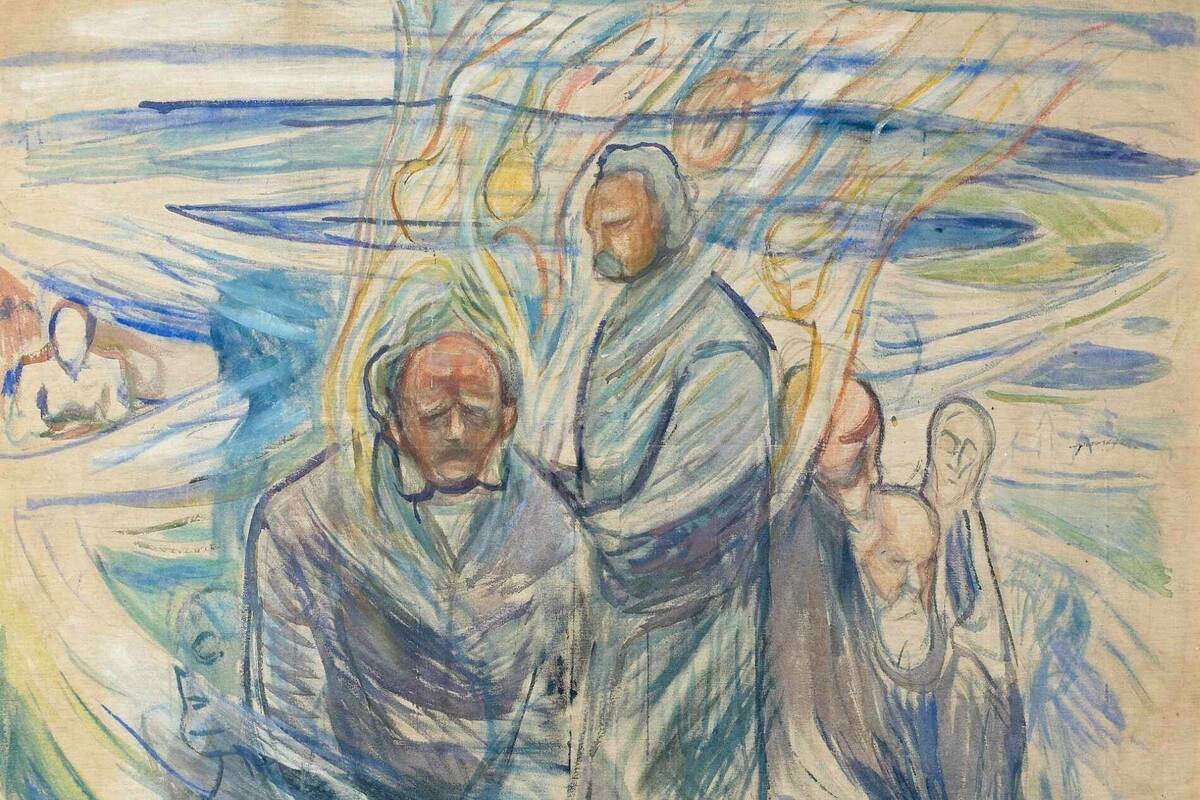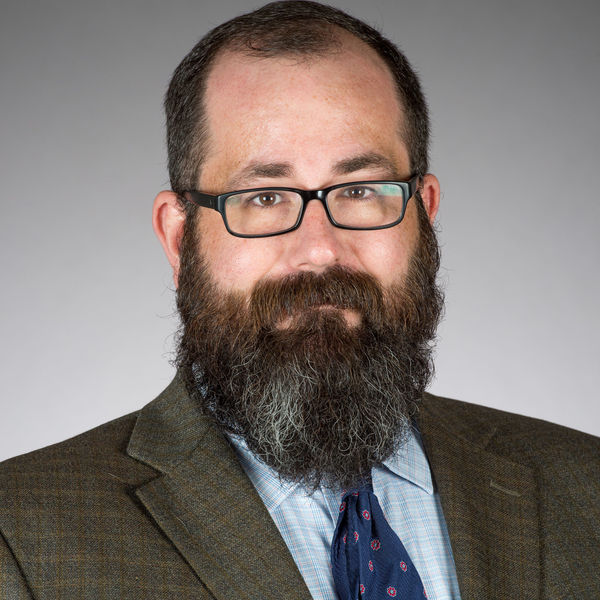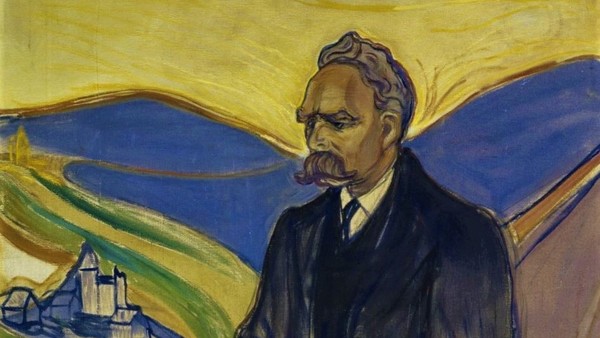If there could be said to be a general diagnostic problem within the reception of the death of God, it is perhaps the interconnection between its originary Nietzschean articulation and the rationalist atheism of the Enlightenment as such. It is certainly true that Nietzsche is expressing a statement of unbelief in God not entirely unlike his Enlightenment predecessors. Nietzsche, just as much as Diderot or D’Holbach, dispenses with the idea of God and does so with a familiar degree of flourish and self-satisfaction. The similarities, however, end somewhere around there. Not only is what emerges from the Nietzschean articulation of atheism a different sort of discourse, but it is also a discourse that will find itself establishing and even cultivating an antagonism to its rationalist corollary, not to mention generating its own internal genealogical lines and maneuvers. Here, I would like to outline what I take to be a secret history of the Nietzschean form of the death of God, one that runs beneath and counter to its dominant form, which runs rather straightforwardly from Nietzsche to Heidegger. It is this pedigree that elides the death of God with the foreclosure of Western metaphysics, the prestige of which has been received warmly by both atheistic and Christian post-Heideggerians—a rhapsodizing for which, in my opinion, the bloom is long off the rose.
Yet rather than play to my worse angels, I will defer my castigation of this line of thought for another time. Here, my focus is on Nietzsche’s afterlives, and it must begin with a return to the phenomenon of Nietzsche, to Nietzsche as phenomenon, to Nietzsche as “navel,” to borrow an image from Freud’s interpretation of dreams. What I hope to show is that Heidegger’s reception of Nietzsche is just one such reception in the early twentieth century and it is both the less interesting and less intellectually viable one, at least (and this is me being modest) for religious forms of thought. The reception of Nietzsche that interests me is the one enacted first by French Surrealism and later by French traditions of Freudian thought—a distinction that is real but less than absolute—which bequeaths to subsequent French and French-styles of philosophical thought a Nietzsche that is more wild, libidinal, and manic—and less fascist—than the one we find in Heidegger. What is at issue in the individuation of Nietzschean genealogies is the role and place of pathos. It is pathos that effectively demarcates Nietzsche from rationalist atheism, and it is the modulation of pathos that continues to mark traces within this secret history. It is also pathos that invites the application of psychoanalytic terminology, which will come largely from Freud’s famous essay “Mourning and Melancholia,” in order to map this terrain as well as to come to some degree of constructive engagement with Christianity. It is through a Freudian lens that we not only see Nietzsche best but also through which we can establish the categories that identify what is common to both these forms of the death of God and even the most mainline forms of redial Christianity.
Fundamental to Freud’s Traumdeutung is what he calls the dream’s navel, the point in the dream which refuses interpretation and knowledge of it end, “the spot where it reaches down into the unknown.” To treat Nietzsche as both navel and phenomenon is not to speak out of both sides of my mouth: Nietzsche figures within the properly phenomenological field of appearance as the impenetrable point at which atheism reaches down into its own unknown, the point that refuses rational appropriation, the point at which rationalist atheism loses its bearing in the face of the tremendum of what cannot in principle be known. Thus, the point cannot be that Nietzsche is an atheist but rather the operation of what he does to atheism, to unbelief. My claim is that Nietzsche is the first to transform utterly unbelief by the investment of pathos into it, and, moreover, to foreclose the drole haughtiness of Enlightenment rationalism, and it is from here that we can go back and retrieve other forms of unbelief to identify their pathologies. Within this genealogical line, the recovery of a pathologized Hegel is paramount.
Nietzsche is the first, in Terry Eagleton’s words, to “confront . . . the terrifying, exhilarating consequences of the death of God.”[1] That is, it is Nietzsche who is the first to see the death of God not as the conclusion of an argument, but as a premise. It is for this reason that Nietzsche could be considered the first “real” atheist. Thus, the transmutation of mere unbelief into (Nietzschean) atheism represents the normalization and regularization of a pathological attitude towards the determinations of truth. In the Genealogy of Morals, for instance, Nietzsche describes atheism as “an awe-inspiring catastrophe, the outcome of a two-thousand-year training in truthfulness, which finally forbids itself the lie in the belief in God.”[2] The atheist, then, is not one who merely rejects belief in God, but is rather the one who denies herself the luxury of supernatural comfort. Atheism, for Nietzsche, is a form of self-denial rather than affirmation, giving structure and character to his program of philosophical askesis on the whole.
If such “real” atheism finds its origin with Nietzsche, it is only through structurally similar transformations that original formulations of true atheism are produced. That is, if a new formulation of atheism is to surpass rationalist mere unbelief, it must pass through this Nietzschean manifold in which it is divested of its rational justification and becomes invested with pathos. Paul Ricoeur argues for a reading of Freud as precisely within the Nietzschean genealogical project, one in which the analysis of the illusion at work in religion “consists in discovering in the hidden movements of consciousness the source of an ‘illusion’ whose function is myth-making.”[3] Freud’s contribution to the Nietzschean project is nothing less than “a new type of this criticism.”[4]
Following Ricoeur, Lonergan writes, “Freud’s originality—the originality of Freudian atheism—is that his atheism is not just another instance of philosophical atheism or scientific positivism, but of an interpretation of personal experience.”[5] There Lonergan identifies the way in which Freud brings atheism under the mantle of personal experience, such that atheism is no longer the conclusion to a logical argument, but is rather an outcome of self-reflection, a self-reflection that is opened up to and complicated by the discovery of the unconscious. In any case, both Ricoeur and Lonergan recognize the legitimacy of the psychoanalytic reading of religion, not on the grounds that its judgment is final, but rather because the critique is incomplete. What is more, Lonergan continues, this incompleteness itself must be addressed, “as in the past Freud has reinforced the faith of unbelievers, so that in the future he may be used to reinforce the faith of believers.”[6]
It is this mode of reinforcement of the faith of believers that I am trying to pinpoint. Following Ricoeur and Lonergan, we can consider Freud’s atheism as a development within the pathology of Nietzschean atheism insofar as it formalizes the identification of God as being “on the side of the transfiguration of the image of the Father,”[7] that is, as being genetically implicated in the traumatic economy of the Father, mythologized as the murder of the primal father and pathologized as “a consequence of the process of repression.”[8] In short, Freud enables us to see atheism itself as a symptom of the repression of paternal trauma. The matter of repression links Nietzsche to Freud, but where Nietzsche advocates for the virtues of that repression in the form of an “active forgetfulness,” Freud will caution us against it with the reminder that what is repressed always returns. On a Nietzschean account, the death of God is the traumatic event par excellence and it is thus the supreme achievement of the active will to have forgotten it.
The fundamental difference between Nietzsche and Freud on this point is that Freud locates the death of God in the order of primordial repression (Ur-Verdrängung), that is, in Slavoj Žižek’s words, not as “a repression of some content into the unconscious, but a repression constitutive of the unconscious, the gesture which creates the very space of the unconscious.”[9] In other words, God survives God’s death but only in the unconscious register of repression as the fundament of prohibition as such. Thus, the configuration of Freud and Nietzsche is properly dialectical insofar as Freud’s recognition of the genius of Nietzsche’s pathologization of atheism surpasses the Nietzschean frame precisely by taking it beyond the strictures of the active and conscious will. At the same time, however, Freud gives us the means to pathologize attitudes towards atheism, such that the notion of “active forgetting” is not merely a concession to God’s revenant existence in and as repression, but also as the expression of an unconscious grief, which for Freud will manifest itself as melancholic or mournful—that is, as confronting a loss that is either pathologically incomprehensible or consciously accepted and integrated.
In the post-Freudian era, the reception of Freud’s understanding of the death of God and its implicit connection to the primordial murder of the primal Father is destabilized in the thought of Jacques Lacan. What is mainly in question for Lacan is the effectiveness of the death of God in forestalling a divine post-mortem existence for God. Or, to put it otherwise, the question is whether a genealogical critique of religion, be it in a historicist or psychoanalytic mode, is sufficient for the task of articulating an affirmation of atheism at all, especially if that form of atheism coextends with the death of God. Lacan will argue that it is not. What Freud fails to see in his own theory is that the death of God fundamentally contradicts atheism; Freud’s discovery of the unconscious was likewise the discovery of the very means by which God covertly continues to enjoy a posthumous life. Nietzsche’s exclusive focus on the conscious, active will likewise implies that the paternal trauma of the death of God cannot be properly identified and integrated, which casts the entire Nietzschean project as melancholic, as a sustained failure to confront the immensity of the loss that God’s death truly represents.
The true formula of atheism is not that God is dead, Lacan will claim, but rather that God is unconscious, though God is not the unconscious or a projection of the collective unconscious, as Jung says in his work on Job. That God is unconscious does not pertain to belief but is rather a recognition of how beliefs are unconsciously structured. Thus, atheism can rid itself of God only at the level of conscious intentionality in the mode of repression. That is, if “God is unconscious” is the true formula of atheism, then the entire horizon of atheism must be redrawn, and redrawn in such a way as to include God within it. Thus, Lacan presents a vision of atheism in which coexistence with and co-affirmation of God is its only viable avenue, yet at the same time he identifies it with the theological task per se. As Lacan says in Seminar XX, it is the theologian, the only true atheist, who speaks God’s words, and does so without fear of God’s continuing to speak from exile in and through human language, even or especially in the pronouncement of God’s death.
In other words, atheism, like theology, is limited not only to God but also by God insofar as God subsists in the very structure and structuration of belief. Lacan’s contribution to atheism, then, is a way out of melancholia, a means to confront and identify with the loss announced by the death of God. In short, it is to make atheism into a mode of mourning. From the Christian vantage, I want to insist that we at the very least try to see a kinship. Both atheism of this sort and Christian theology of any sort can be seen as what Freud calls Trauerarbeit, the work of mourning. Christians are baptized into the death of Christ who is and was and will be God; we commemorate and sustain ourselves by his death in the Eucharist; we appeal to his death for the forgiveness of sins, and so forth. What else could our soteriology, liturgical theology and practice, and even our trinitarian theology be if not the work of mourning? For both the Christian and the atheist, God survives God’s own death. For us, granted, that death is sweetened, even sublated, by resurrection and the hope of eternal life, but does (or should) theology ever cease to be done “for the sake of his sorrowful passion?” Does theology ever cease to be the work of confronting the loss represented in the Cross, even if (or especially if) it is regained beyond measure in God’s saving work? As Slavoj Žižek has rightly pointed out, it is the atheist who very often shares more profoundly in Christ’s exclamation de profundis of godforsakenness, even if we insist, and I think we must, that it is atheism that has left those depths unplumbed. The threat to atheism is not belief in the same way that the threat to belief is not unbelief, but is rather to give our grief over to melancholia, to refuse the hard work of identifying with a God who has died, to see only absence or presence when in fact there is both.
[1] Terry Eagleton, Culture and the Death of God (New Haven: Yale University Press, 2014), 151.
[2] Friedrich Nietzsche, On the Genealogy of Morals. Translation by Douglas Smith (Oxford: Oxford University Press, 1996),
[3] Paul Ricoeur, “The Atheism of Freudian Psychoanalysis,” trans. Ruth Dowd. Concilium 16 (1966): 60.
[4] Ibid.
[5] Bernard Lonergan, “Sacralization and Secularization” in Philosophical and Theological Papers, 1985–1980: The Collected Works of Bernard Lonergan, Volume XVII (Toronto: University of Toronto Press, 2004), 261.
[6] Ibid., 26.
[7] Paul-Laurent Assoun, Freud and Nietzsche, trans. Richard L. Collier, Jr. (London: Continuum Books, 2002), xxxvi.
[8] Sigmund Freud, “Inhibitions, Symptoms, and Anxiety,” 20.91.
[9] Slavoj Žižek, Less Than Nothing: Hegel and the Shadow of Dialectical Materialism (London: Verso Books, 2012), 860.


